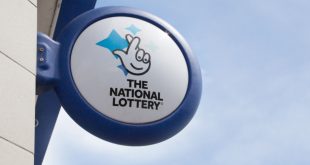Global: sports rights – hi ho silva lining?
MP & Silva has reportedly missed key payments to various rights holders (including EPL) and is in financial difficulties. MP & Silva (only fourteen years old) was once seen as one of the most successful sports rights management agencies and its potential fall signals something much bigger than corporate mismanagement. Significantly, one of the founders took a US$1.1bn valuation and switched into streaming with Eleven Sports – perhaps understanding the shifting dynamics faster than most (and allegedly breaking the news of MP & Silva’s difficulties).
So far, we have seen Amazon arrive in the sports streaming market while Perform has invested considerably in its OTT DAZN platform; on the other side of the coin BT Sport’s more traditional approach has failed to gain traction while both Sky and IMG are also struggling to maintain share amid rising costs and increasingly fragmented distribution. These changes potentially mean a great deal for the gambling sector.
First, in a market where rights distributors are making increasingly big bets on both the value of sport and the channels through which they are consumed, the costs and risks of winning and losing are rising all the time. At the moment focus still tends to be largely strategic (‘investment phase’) or outcome-driven (‘structural challenges). However, both of these put increasing pressure on monetising existing positions, either offensively or defensively. In this context, betting-related rights are likely to come under increasing focus, especially in markets where betting is prominent/visible/newsworthy (UK, US, Italy especially). This scramble to monetise could coincide with the increasing popularity of ‘bet-and-watch’ streaming, historically the preserve of larger operators and selected events. The problem with this is cost – if a broad range of streaming becomes increasingly a hygiene factor (and especially if streaming is increasingly linked to data), then the ability for small and mid-sized operators to compete becomes increasingly challenged, in our view.
Second, the way in which people consume sports is changing. The issue is not just the obvious switch from TV to streaming, but also from scheduled viewing to on-demand, from full game formats to snacking on the best bits. Customers are becoming less homogenous and more fickle. Advertising is therefore becoming more complex (unless operators can take a global view) and betting habits are changing faster than UX is responding. We have already seen the benefit of ‘third generation’ technology disrupting mobile gaming, with relative newcomers stealing significant market share while what has looked like relative ease. This effect has not yet been seen in betting, with ‘second generation’ operators largely holding all the cards – this might (we stress might) be about to change, with changes in how sports content is consumed as a key catalyst (it is perhaps telling that Perform, for many years as distant from the betting value chain as ownership of Running Ball can make it now seems to be behind a sportsbook frontend with FSB: dabblebet).
UK: In Parliament – Heavy Barrage Precedes Summer Interlude
In a rare turn up for the books, the benefits of gambling were celebrated in Parliament this week. Of course, the plaudits were reserved exclusively for the National Lottery and Heritage Lottery. For the industry at large it was another week of political bombardment – but we must take our good news where we find it.
On Monday, the cross-bench Earl of Clancarty (a member of both the Irish and Dutch nobility) led a debate in the House of Lords to interrogate the Government on plans to increase sales of the National Lottery (and so funding for good causes). Defending the National Lottery inevitably means attacking umbrella society lotteries and both the Health Lottery and the People’s Postcode Lottery came in for stick. There were also calls for duty reform (migration to a gross profits tax); a reminder that Lottery funds should not allow Government to abandon its funding obligations; while a number of culturally-minded peers pressed the case for the Heritage Lottery to be given greater freedoms.
The Lib Dem peer, Lord Foster of Bath joined Labour’s Baroness Andrews in asking for an investigation of the impact of the remote gambling sector on Lottery sales; while the Methodist minister, Lord Griffiths of Burry Port championed a mandatory levy (at 1% of GGR) to pay for gambling harm research, education and treatment (‘RET’).
The Government’s consultation into reform of society lotteries closes on 7th September. On Tuesday, it was a return to the gambling issue that simply will not go away – the question of maximum stakes on machines in betting shops. Carolyn Harris’s FOBT APPG convened its latest inquiry session, with the Mayor of Newham, Rokhsana Fiaz and Councillor Anita Lower of the Local Government Association adding their voices to calls for swift implementation of the new £2 stake limit.
Perhaps more significantly, the APPG offered a platform to the recently launched Gambling with Lives pressure group. Josephine Holloway and Liz Ritchie, both of whom have lost sons in gambling-related suicides, offered their insights into the impact on people and families of problem gambling.
The Conservative peer and PR guru, Lord Chadlington (Peter Selwyn Gummer) is a vice-chair of the FOBT APPG and it is likely that the testimonies from Gambling with Lives was on his mind when he wrote an excoriating piece on Politics Home about the need for policy reform. His six-point plan comprised “more independent and objective research into gambling – particularly the suicide risks and impact on children”; reduction in stakes on FOBTs before 2020; an education programme to raise awareness of gambling-related harm; consideration of a blanket ban on gambling advertising around televised sport; a national, Government backed treatment and support programme for those affected by problematic gambling; and a 1% (£130m per annum) statutory levy to pay for it all.
It was a busy week for Lord Chadlington, who also submitted eight written Parliamentary Questions on gambling-related harm amongst young people; gambling and mental health problems; plans for research into gambling-related suicides; the number of people imprisoned in relation to problem gambling; support for problem gamblers in British prisons; Government efforts to minimize “the addictive nature” of gambling products; and HM Treasury’s record of engagement with gambling operators and forecast tax receipts from FOBTs.
In the Commons, the Labour Party Deputy Leader, Tom Watson (Lab, West Bromwich East) was even more prolific, firing in no fewer than nine PQs on restricting gambling on credit cards; giving local authorities greater powers to address gambling harms; restricting online gambling-style games aimed at minors; analysis of the (negative) effects of gambling advertising; the merits of a statutory levy for RET; gambling addiction amongst children; plans to recognise gambling addiction as “a distinct mental health condition”; and the Government’s assessment of “the effectiveness of responsible gambling messages in tackling problem gambling”.
In all, no fewer than 23 written PQs on gambling were submitted during the week – ten in the Lords and 13 in the Commons.
The political pressure on gambling is at something of a fever pitch right now; but there was at least some relief for a beleaguered industry this week. Michelle Donelan, the Conservative Member for Chippenham dropped (for now) the Westminster Hall Debate on gambling advertising that she had planned for next Tuesday in order to make way for her colleague (and fellow critic of the gambling industry), Fiona Bruce (Cons, Congleton) to debate family hubs.
UK: Safer Gambling – First Do No Harm
As the eminent Professor David Forrest is fond of observing, gambling – like other forms of entertainment – is predicated on both suspense and surprise. This week, William Hill proved the point by delivering each of these elements with the launch of its ‘Nobody Harmed’ commitment.
The source of the surprise was two-fold – both that any gambling company would volunteer such an unflinching assessment of the consequences of excessive gambling; and also (frankly speaking) that the company that would eventually break cover on the subject would be William Hill.
Historically, Hills has not had the best reputation in terms of corporate attitudes towards gambling-related harm. The company has faced high profile regulatory sanctions for licensing failures both here and in Australia whilst the rhetoric of some of its (now departed) executives on the subject of gambling regulation has not helped matters. Yet, the ability to respond positively to criticism is a sign of corporate intelligence.
Now comes the suspense element – ‘Nobody Harmed’ is a big promise; indeed, it may not be entirely realistic. As we have observed before, gambling-related harm is not the same as harm caused by gambling. In many areas of human consumption harm happens. Some people suffer harm associated with drinking too much; for others it’s eating too much. There are those who experience harm in relation to working too much and those from working not enough. Other factors are invariably involved and correlation is not the same as causation.
We strongly suspect that so long as there is gambling, there will be gambling-related harm (just as there will always be alcohol-related harm so long as we drink, internet-related harm so long as we surf and retail-related harm so long as we shop). That does not mean that a pledge to do no harm is meaningless. If a bold statement of ambition can inspire meaningful action then it is worthwhile – even if ultimately it falls short of its goal.
There will be those who criticise William Hill for being long on aspiration and short on detail – but this is just the start and the company deserves the benefit of the doubt. Similarly, it is likely that the ‘Nobody Harmed’ epithet will be flung back in the company’s face whenever a mistake is made – something the company’s management surely knew when they started off down this road.
Others will be almost professionally cynical about it all; yet those who refuse to even consider that the company may be on the level (and that this therefore offers the opportunity for progress) may do well to reflect on the true nature of their own priorities.
We believe William Hill deserves credit for recognising in such a public way the severe harms that can attend gambling – and for avoiding the temptation to blame those harms on others. The acceptance that past performance has not been good enough is equally to be admired – both by peers and by those who sit in judgement on the industry.
Gambling is – by common consent – in something of a mess in this country right now; something that cannot (by definition) be exclusively the fault of the industry. In the last few months, we have heard expressions of contrition for mistakes made from certain operators (William Hill and Sky Betting & Gaming for example) and – to their great credit – the Responsible Gambling Strategy Board. This is a mark of maturity and a sign of hope. It is precisely because the failure to acknowledge mistakes often leads to their repetition that the ability to admit past errors is a key component in rebuilding trust.
We do not know what will follow – commercial pressures compete with the best of intentions – but William Hill deserves credit for demolishing some of the barricades that have frustrated meaningful attempts to reduce harm through cross-interest collaboration.
Harm is likely to prove the theme of these times in gambling. Embracing this subject – in the way that a number of companies are now doing – may well be critical to the future well-being of the industry in this country and others.
France: World Cup betting – a winning market?
ARJEL has released World Cup turnover stats (for the entire tournament) that demonstrate a number of key points from an overall market perspective. First, the scale of this year’s World Cup from a domestically regulated perspective is prima facie impressive: €690m of turnover represents 81% of Q118 online sports betting turnover and a 137% increase on 2014 WC turnover (when the market was still adjusting to relatively recent ‘re-regulation’). From a key match perspective, the top 5 (of 64) represented 24% of the total (or 4.8% per match vs an average of 1.6%), with the final taking almost 10% of volumes (though almost certainly losing money for domestic operators at the revenue level given France’s victory, significantly skewing margins vs. pan-European / global books).
These appear to be impressive stats in terms of scale and engagement, but we should not get too carried away. First, comparing a four-year cycle in a growing market is dangerous: from a CAGR perspective is a far less impressive and far more expected 24%. Second, fully 45% of the domestically regulated revenue came from retail, an FDJ monopoly, and demonstrating that mobile mass market is not (yet) ubiquitous, especially where regulatory barriers are in place (in France’s case high turnover taxes limiting pricing and competition; the underlying split is more likely to be 75/25, in our view, suggesting c. 44% ‘leakage’). Third, France’s winning performance is likely to have skewed national figures considerably: 10% of volume was on the final and 3% on the semi, a great deal of this would likely have not been wagered had the French team not performed so well (or other theoretically strong teams so badly). France’s headline stats are therefore impressive, but the underlying trends demonstrate a combination of luck, relatively prosaic underlying growth and a still-dysfunctional market, in our view.
Scandinavia: Q2 so far round-up – Nordic light?
Several Nordic operators have reported Q2 results already, illustrating continued performance divisions in the markets. However, four key themes are being reinforced in our view. First, growth is still very much achievable despite increasing maturity, with mean growth so far of c. 22%, with about 10ppts of that directly attributable to the World Cup. Second, monopolies should not be under-estimated, with Svenska Spel taking the largest share of online growth in absolute terms despite product limitations (albeit not necessarily a bad thing in a World Cup period). Third, achieving growth can be expensive for less differentiated operators, with too much focus on topline potentially leading to disappointing earnings – with very few operators having the discipline to achieve the reverse. Finally, the level of Swedish regulatory dislocation is likely to be material, with lingering .com optimism dangerously misplaced, in our view.
The most important results (in our view) came from Svenska Spel: while headline revenue and profit was disappointing (-3% and -12% respectively), this was overwhelmingly VLT and investment led; online achieved 20% growth, cementing online sportsbetting leadership (including 42% mobile growth) while the business readies itself for becoming an even more effective competitor in Sweden (broader offer, including casino). At the other end of the scale,
Betsson offered a mixed bag (+14% total, 11% organic, c. 8% organic cc): the biggest headwind was Turkey (currency and underlying), down 44% and costing 3.6ppts of growth; Nordics benefitted from the World Cup (3.7% group revenue) but was weak in casino (+18% sportsbook but only 7% overall); Western Europe was strong in casino but weak in betting, despite the first half of the World Cup (+19% organic, largely casino); Central Europe was disappointing (+1% organic). The biggest concern to us, however, is Betsson’s view that ‘re-regulation’ of Sweden will lead to ‘strong growth’ in 2019. Sweden is currently about as open as can be: no tax, not social responsibility requirements, no product restrictions and heavy advertising (roughly one TV ad in 10 is for gambling) – the idea that domestic regulation will lead to growth is naïve at best, in our view (and reminiscent of late naughties operator views/spin that evidence has long since debunked); instead Swedish regulation is likely to create stiffer competition (Svenska Spel entering gaming, ATG entering sportsbetting; both materially bigger than Betsson online in Sweden already) while also costing c. 14% of group EBIT in duties– this is a storm Betsson can weather, but hardly an opportunity, in our view.
LeoVegas’s increased profit guidance was also instructive. The company spent 35% of revenue on marketing rather than a projected 42% (but still hit €82m revenue), because its data analysis suggested bad marketing value in the World Cup frenzy. To an extent this is likely to be because LeoVegas has a relatively small and undifferentiated sportsbook, meaning bigger and better betting-led operators can outspend with confidence. But it also likely points to a critical mass of operators overspending and under-delivering, especially if Q3 retention is as poor for mass-market customers as it usually is. LeoVegas’s operational discipline is a large part of what has created a business approaching the scale of 888 in B2C terms in less than a quarter of the time it took the once-mighty first mover – in the largely free-wheeling online space, that discipline remains something of a USP.
Finally, recently renamed MRG has continued its impressive return to growth at the topline level, with Q2 revenue up 43% to SEK413m (€40m), 31% organic and 27% cc, including 200% growth in sportsbook (from a low base). Organic growth was led by Sweden and Denmark, while the Evoke acquisition is outperforming both topline and synergy expectations and the 11.lv acquisition (Baltics) is showing 93% growth even prior to core brand launch. MRG is also starting to develop its own content, the first of which will be launched in Q3 (providing both differentiation and cost synergies if well executed). MRG therefore appears to have shrugged off its 2015-H116 growing pains and is now expanding above the pace of the market again. This is fortunate, since by our estimates Swedish duty will cost 31% of group EBITDA – a material dislocation if by no means fatal (on its own). However, this topline performance seems at least in part bought, with EBITDA falling by 13% and perhaps identifying one of the operators which caused LeoVegas to step aside from spending. It is also worth flagging the dangers of focussing on only the ‘go’ parts of a stop-go performance: three-year CAGR is 27%, including the benefits of currency and acquisition – good but not great, in our view.
Japan: landbased casinos – Sun Rises on Resort Casinos
It seems that occasionally, good things do come to those who wait. Today, after a long and at times painful journey through the legislative process, the Japanese Diet finally approved legislation to permit three integrated resort casinos for the country. There may yet be the odd zig or zag ahead (recall that the British Parliament approved a destination casino in 2005 and we are perhaps further away than ever from realising it) but the operators are now in harness in the race to make it happen.
Coming just a few months after the repeal of PASPA, the lessons appear to be that the road to positive reform in gambling is a long one – patience and bloody-minded perseverance are much under-rated qualities in this industry, and also that meaningful concessions to responsible gambling really can unlock growth opportunities
Global: cryptocurrency – on the up?
The price of Bitcoin has risen over 16% to US$7,400 in the last seven days, its biggest gap up in its tumultuous history (though with the move hardly showing up on a 12m chart), other cryptocurrencies also showed double digit gains. The driver of this latest bounce is possibly one of the most significant to date: David Solomon, incoming CEO of Goldman Sachs, said the investment bank is looking in to adding further Bitcoin and cryptocurrency options to its portfolio, making its position much more direct (and directly, if only implicitly, supportive). Further, this would indicate that the bank is to follow the findings of the US IRS from March 2014 – treating cryptocurrencies as an asset rather than currency.
This highlights two key tensions in cryptocurrencies from a gambling perspective (over and above all the fun of extreme evangelism/cynicism and volatility). First, if major financial institutions are prepared to deal in/with them directly, then they are likely to become increasingly mainstream: gambling companies therefore have a stark choice of potentially being (dangerously) ahead of their political/regulatory masters (and potentially more conservative banks/payment providers) or behind their competition. Second (and in opposition to the first point), if cryptocurrencies are increasingly seen as an asset then this effectively supports volatility (they are unlikely to become AAA anytime soon and are likely to be offered as ‘spice’ – a category that becomes self-fulfilling): the extent to which they are suitable as consumer currency therefore diminishes (further) – adding an additional layer of consumer risk to a sector which really doesn’t need more causes for ‘public concern’ right now…
Global: M&A Watch – PPB / FanDuel; mybet; Caesars / Centaur; Sun Bets
PPB’s acquisition of FanDuel has completed with the incorporation of a new company – FanDuel Group Inc – within which sit several brands including FanDuel, TVG, Betfair Casino and DRAFT. PPB holds 61% of the merged entity.
mybet Holdings SE has confirmed it is in talks with a strategic investor regarding the possible sale of its online business – essentially the digital assets operated under the mybet.com domain.
Caesars Entertainment Corporation has completed the acquisition of Centaur Holdings for $1.7 billion in cash. The transaction adds Hoosier Park Racing and Casino in Anderson, Indiana, and Indiana Grand Racing and Casino in Shelbyville, Indiana to the Caesars Entertainment portfolio.
Tabcorp Holdings has completed discussions with News UK to terminate its Sun Bets joint-venture. News UK confirmed it “will firmly remain in the betting and gaming business”.









